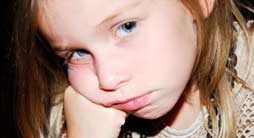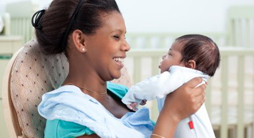RSV in Infants: What Parents Should Know
Did you know that RSV is very common and something that your baby will likely be exposed to? Dr. Darren Saks, a pediatrician from Tenafly Pediatrics in Northern New Jersey, sheds light on RSV’s impact on infants, debunking myths and bringing us valuable information.
Understanding RSV
RSV stands for Respiratory Syncytial Virus. RSV is something that kind of sounds scary and it’s in the news a lot. So there’s probably this sense, for most, that it’s a rare infection. That’s actually not true at all. It’s quite common, pretty ubiquitous. Everybody that’s ever had a cold at some point – one of those colds was RSV.
Treatment Options
Viruses are tough. Doctors have very few tools to handle, or to treat viruses. And RSV is one of the most frustrating ones from a pediatrician standpoint because when you get it and it causes bronchiolitis. They just basically support your baby until they recover on their own.
There are nebulizer treatments, there are suctioning options, but for the most part, it’s your baby’s body that has to clear out the mucus in their tiny little bronchioles, and that’s why it’s called bronchiolitis.
The Role of Testing
One of the things that comes up a lot, especially in the last year, is testing for RSV. There’s been a lot of development in the last three or four years, especially with covid, that rapid point of care testing can be done. Well in truth, testing for RSV it isn’t that helpful. When we evaluate a baby, we’re determining if they have bronchiolitis, which can be caused by a couple of viruses. Actually many, depending on the region of the world that you’re in. So knowing if your baby has RSV or adenovirus or rhinovirus isn’t that important. We’re here to address your baby’s bronchiolitis.
A New Prevention Tool
Now for the first time, we finally have a tool that actually can prevent the severity of an RSV infection. And there is a product now on the market called Beyfortus, which is a monoclonal antibody that babies can receive, which will protect them from the severity of a RSV infection. It’s definitely something we do recommend, and for the first time we have a tool that will hopefully decrease the intense RSVs that pediatricians see every year.
Conclusion
So bottom line, RSV is very common. It’s something that your baby will likely be exposed to. Most of the time it’s mild. but when it is more significant, we will have to work through different treatment options, and then we finally have a tool to provide some prevention. It’s not a vaccine, it’s an antibody – and it’s something that you should definitely discuss with your pediatrician.
About Our Expert: Dr. Darren Saks, MD is a pediatrics specialist at Tenafly Pediatrics with over 26 years of experience in the medical field. He served as Attending Physician at St. Christopher’s Hospital for Children in the Emergency Department, and is currently an Attending Physician at Englewood Hospital and Medical Center, Hackensack University Medical Center and The Valley Hospital. Dr. Saks enjoys spending time with his wife, a Special Education Teacher, and three children – boy and girl twins, and a younger daughter. He has a special interest in helping families and communities understand the effects that media has on our children and society. Visit: tenaflypediatrics.com






